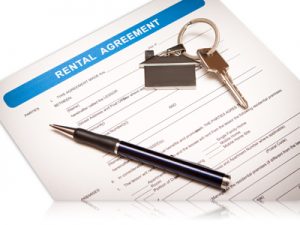Driving under influence, hit and run incidents, running a stop sign, driving over the speed limit, etc, are “moving violations” and committing such a violation results in various consequences for the driver depending on the violation and the law. Here are the answers to three common questions asked regarding moving violations and its effects on the offender.
What is a Moving Violation?
A moving violation is any action committed by a driver in a vehicle that is in motion that violates the laws, statues or rules of a state. Illegal turns, illegal lane changes, failure to use seatbelts, obstructing traffic, unnecessarily slow driving, stop light and signal infractions, among others are considered minor violations while speeding over a set limit, speeding in a construction zone, driving under influence, failure to stop and driving with no insurance to name a few, are considered major violations. While the majority of violations incurred are minor infractions there are cases considered serious felonies in traffic violations such as careless or dangerous driving, disobeying police officers, vehicle manslaughter and racing, among others.
How Does a Moving Violation Affect the Offender?
Moving violations differ according to individual jurisdictions and the violations themselves separate as infractions, which are minor, and misdemeanours or felonies, which are major. Offenders of infractions are usually required to pay for the ticket they receive for their offence while the more serious violations can result in high penalties, loss of driver’s license and imprisonment. Apart from the immediate consequences, each violation issues a point against the offender according to the law in the area in which the violation was committed. Enough points accumulated earn a driver the loss of their license and driving privileges. Points also affect the amount of insurance premium that a driver pays. A higher number of points against an individual results in a higher premium because the insurance company regards the individual as a high-risk driver. An insurance company can even choose to cancel a driver’s insurance due to the number of points accumulated. High insurance premiums are one of the fastest ways towards debt and bankruptcy. For an individual involved in a profession that requires a clean driver’s record, tickets and points will result in the loss of their job. Once a violation is committed, an offender must face the general consequences however, traffic lawyers come in handy for recommending options that can reduce the penalties an individual is facing.
What Can I Do if I Commit a Moving Violation?
Denial is a common reaction among many drivers when stopped by a law enforcement officer. However, corporation rather than denial will definitely go a long way. Once you notice an officer asking you to pull over, respond immediately. Carefully pull over, switch off the engine and switch on the hazard lights, open your window fully, if it is dark switch on the interior lights, keep your hands where they are clearly visible and stay still until the officer approaches you for questioning. Be polite throughout the entire questioning and avoid admitting guilt because there may be a chance for you to fight your ticket in court. Pleading guilty will result in having to pay the maximum fee and charges recorded on your license. However, there is a chance that you may be able to reduce or dismiss the fee and avoid going on record with the help of traffic lawyers. Even though it may seem easier to pay the fee rather than go to court, it could actually save you money to consult an attorney than to pay the maximum fine.
As always, prevention is better than cure, it is much better to drive safe adhering to the rules than to risk a violation and suffer the resulting consequences.


